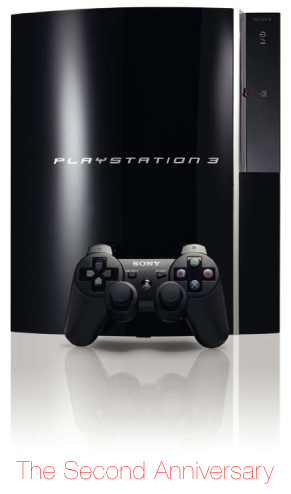With so many people wishing Sony would cut the PS3 price to something more reasonable, it’s no big surprise we see constant rumors about potential “price cuts.” This time, a March 2009 rumor “supposedly” came out of the Sony Annual Briefing in London where a butt ton of information was “rumored” to be leaked.
 The anonymous source is running around with a bunch of neat rumors, such as a LittleBigPlanet release on the PSP but the one that may hit home most with gamers is price cutting. The PS3 has been around for a few years now and hasn’t budged on the price tag; they’ve had fire sales on obsolete products (smaller disk drives mainly) but no official drops.
The anonymous source is running around with a bunch of neat rumors, such as a LittleBigPlanet release on the PSP but the one that may hit home most with gamers is price cutting. The PS3 has been around for a few years now and hasn’t budged on the price tag; they’ve had fire sales on obsolete products (smaller disk drives mainly) but no official drops.
Sony won’t comment on speculation, of course, but we’re sure they want to catch Mr. Anonymous from hiding in their meetings and giving away their information… if it is real. D+Pad published the rumor-mongers message saying the “SCEE will be getting more competitive in price from March 2009 onwards.”
Easter would be a fine time for a price cut, if the speculation is real. This upcoming holiday would have made the most sense, to consumers, but Sony apparently has no plans to reduce the price around the time their sales will be increasing anyway. As the PlayStation 3 is doing okay in PAL territories Sony is relying on them, it would seem, to kick up the numbers and show Microsoft they’re not the only second-place game in town.
The Wii continues to dominate and we’re sure a PS3 price drop won’t impact Nintendo’s sales strategy or gamers decisions on one console versus the other as a price drop wouldn’t bring it to a competitive Wii price.
What is your magic number? What price would you buy a PS3 at if you don’t own one already. For us? Drop it a bit and throw in a free LittleBigPlanet.

 Gamers around the world have noticed a large trend in the video game industry in the last 15 years, massive growth with massive projects and unbelievable costs, goals and sales. We’ve seen the impossible become achievable in epic projects like World of Warcraft and huge sales figures from Halo 3 but we’ve also seen game titles fall down in a burning wreck.
Gamers around the world have noticed a large trend in the video game industry in the last 15 years, massive growth with massive projects and unbelievable costs, goals and sales. We’ve seen the impossible become achievable in epic projects like World of Warcraft and huge sales figures from Halo 3 but we’ve also seen game titles fall down in a burning wreck.